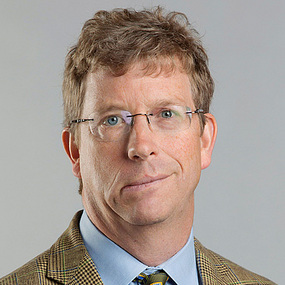You’re as likely to find Michael “ACE Veteran” McNally out in the community as at Leighton Hall. He’s taught Academic Civic Engagement courses since he returned to Carleton as a professor in 2001 (he graduated from Carleton in 1985). A specialist in US religious history, with a focus on Native American religions, McNally has long espoused learning as a relational endeavor.
Bringing indigenous pedagogy into the classroom, McNally says that learning about culture in oral traditions, links knowledge with responsibility. For students to be familiar with that juncture of knowledge and responsibility, McNally integrates classroom learning with learning with Native community partners and gesturing towards that link of knowledge and responsibility. This school year, McNally is teaching two ACE courses. Currently, he’s teaching RELG 130: Native American Religions. In the winter, he’ll teach RELG 243: Native American Religious Freedom.
Students in Native American Religions have a variety of opportunities for civic engagement including working at a seed bank for heirloom indigenous seeds, helping the White Earth Nation Ojibwe assemble curriculum materials to promote healing from historical trauma linked to boarding schools, and helping coordinate events like powwows and intergenerational summits.
Earlier this month, students went to Harvest Day at the Dream of Wild Health Farm. Dream of Wild Health is a seed bank and an organic farm, as well as a hub promoting health and well-being through indigenous foods and farming. Sam Cattau ’15, who went to the farm, says the experience “was a blessing” and that he enjoyed shelling beans and picking beets and kale. “I know my classmates and I had fun,” says Cattau.
While both of McNally’s courses grapple with the complexities of native religious traditions, Native American Religious Freedom is the real heavy hitter. In that course students learn about the challenges Native American communities encounter as they try to protect sacred lands, practices, objects, knowledge, and ancestral remains under the discourse of religious freedom. The course, says McNally, is 1/3 learning about Native American religions, 1/3 learning about case law involving the First Amendment, and 1/3 learning about the ramifications when Native American religions don’t fit the framework of religions recognized under the First Amendment.
The past two times McNally offered the course, students partnered with Suzan Harjo (Cheyenne/Muscogee). Harjo is the founder of the Morning Star Institute — a policy research group for Native American cultural rights based in Washington DC. Harjo commissioned students to catalogue and research as many religious sites located on land belonging to the National Parks Service. By cataloging the various ways non-Native religious sites like historic Quaker Meetinghouses or Civil War Cemeteries, are handled by the Park Service, students helped Harjo craft an argument for better treatment and co-management with the tribes of sacred sites located on government lands. Very cool work!
McNally is very excited to teach the course this winter. No prerequisites are required.

